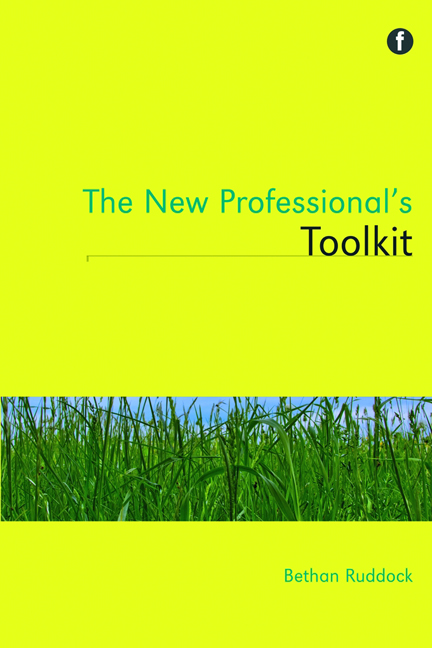Book contents
- Frontmatter
- Dedication
- Contents
- Preface
- Acknowledgements
- Glossary
- Introduction
- 1 Project management
- 2 Teaching, training and communicating
- 3 Meeting your users' needs and measuring success
- 4 Marketing your service and engaging stakeholders
- 5 Using technologies
- 6 Getting and staying online
- 7 Generating funding and doing more with less
- 8 Managing money, budgets and negotiating
- 9 Information ethics and copyright
- 10 Upskilling and professional development
- 11 Networking and promoting yourself
- 12 Professional involvement and career development
- Conclusion
- Appendix: Budgeting example spreadsheet
- Index
9 - Information ethics and copyright
Published online by Cambridge University Press: 08 June 2018
- Frontmatter
- Dedication
- Contents
- Preface
- Acknowledgements
- Glossary
- Introduction
- 1 Project management
- 2 Teaching, training and communicating
- 3 Meeting your users' needs and measuring success
- 4 Marketing your service and engaging stakeholders
- 5 Using technologies
- 6 Getting and staying online
- 7 Generating funding and doing more with less
- 8 Managing money, budgets and negotiating
- 9 Information ethics and copyright
- 10 Upskilling and professional development
- 11 Networking and promoting yourself
- 12 Professional involvement and career development
- Conclusion
- Appendix: Budgeting example spreadsheet
- Index
Summary
Introduction
Adhering to a set of common ethical standards and values is part of what defines a profession, and is as important for information professionals as it is for doctors or lawyers. When you become a member of a professional body, you agree to abide by the ethical practices of that body, and may be subject to disciplinary proceedings if you are found to have not done so. Non-members should not take this as permission to disregard ethics! Acting with integrity should be a vital part of every professional's conduct, whether they have committed to adhere to a particular code of conduct or not.
As Sturges (2003) points out, the UK didn't have an official ethical code for library and information professionals until 1983, and was again without one in the early 2000s, following the formation of CILIP from the merger of the Library Association and the Institute of Information Scientists: ‘The evidence suggests that if a code has any function at all in Britain, it is not to provide a set of rules against which the conduct of delinquent members can be judged. Rather it is to set out principles that will help the membership as a whole to structure their professional conduct’ (2003).
Frank Boles of the Society of American Archivists (SAA) makes a similar point: ‘In the end, the Code of Ethics is for our members to use – and perhaps place in their own work environments – rather than for the Society to enforce’ (2009). While this may be true in most cases, there is a recognized need for recourse in cases of breach of ethical codes, and most professional organizations have a system in place to deal with them. It may be argued that being seen to censure those who fail to uphold the ethical and moral standards of the profession is a key component of upholding professionalism in the public eye.
It is likely that most practitioners will never come into contact with official disciplinary proceedings, or serious breaches of the ethical code, but they will come into contact with ethical dilemmas, and this is where the guidelines and communities of discussion come in. Guidelines by themselves are very useful things to have, but it can be difficult to apply them in practice.
- Type
- Chapter
- Information
- The New Professional's Toolkit , pp. 141 - 156Publisher: FacetPrint publication year: 2012



